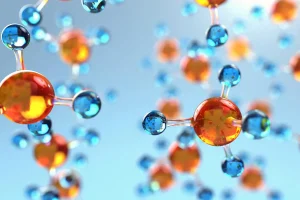Students will study the three branches of Chemistry: Organic, Inorganic and Physical.
Teaching and learning methods
Lessons are a mixture of theory and practical work. There is a strong emphasis on explaining the outcome of practical work using the theory learned. Progress is monitored throughout the course using cumulative progress assessments and mock exams.
Assessment
The A-level is a linear course with assessment 100% by examination at the end of Year 13.
Paper 1 – Inorganic and Physical (35%)
Paper 2 – Organic and Physical (35%)
Paper 3 – Practical, data handling and synopsis (30%)
A practical endorsement is also undertaken to show proficiency of skill, however does not contribute to the final A-level grade, this constitutes as a pass or not classified on the A-level certificate.
Careers Insight
A-level Chemistry is an essential requirement for many university courses in medicine, dentistry, chemistry, veterinary sciences and pharmacology and is a useful basis for the study of many aspects of both biological and physical sciences. A-level Chemistry is also of benefit for students wishing to apply for courses in forensic science, environmental or geological sciences, biochemistry, engineering and finance-related degrees.






